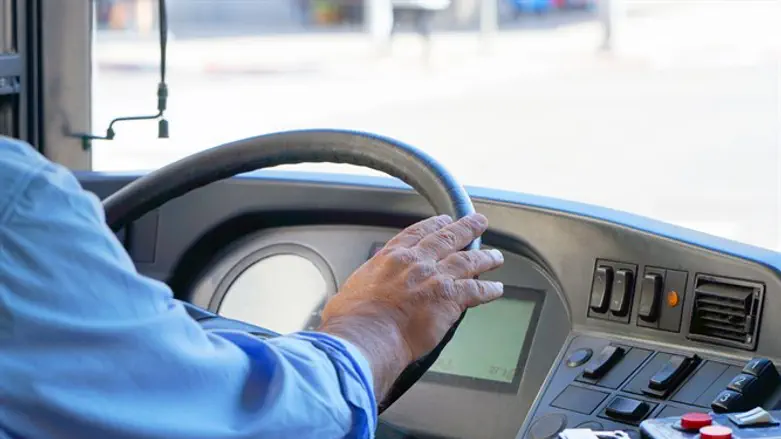
Nearly 200 coronavirus patients have used public transportation since June 1, the Health Ministry's epidemiological investigations show.
Quoting the Ministry, Israel Hayom noted that the199 coronavirus patients used Israel's public transportation system between June 1 and July 6. Most of these patients traveled on both local and intercity bus lines, but not on the train lines.
However, since the beginning of July, nine coronavirus patients were found to have used trains, and one traveled in a private taxi.
Though the Health Ministry reinstated the requirement to wear masks in enclosed spaces, there has not been an order to enforce the guidelines, leaving the onus on the drivers to ensure that the passengers wear masks.
Meanwhile, according to Israel Hayom, there have been over 20 instances in the past two weeks of drivers being attacked by passengers, after the drivers requested that the mask mandate be followed. Some of the drivers required medical treatment.
Koach LaOvdim - Democratic Workers’ Organization, told Israel Hayom: "We have learned from our experience during the previous waves of this crisis: The drivers are fighting for their health and the health of their passengers, and are forced to fight on their own with passengers who refuse to wear masks, and do not receive support from the companies or from the Transportation Ministry."
"According to the statistics we have, there has been a 20% rise in violence towards drivers during the coronavirus [pandemic], and the majority of violent instances occurred due to drivers' insistence that masks be worn.
"A reality in which a requirement to wear masks becomes an excuse for an attack is unacceptable. There must be an increase in activities to raise awareness, as well as in police presence."
One driver, who works in the central city of Rishon Lezion, told Israel Hayom: "We can't continue this way. I'm not allowed to remove a passenger, because I don't have the authority, so I turn and request that masks be worn. In most cases the public responds in the affirmative, but if someone doesn't feel like wearing a mask at that moment, I can't do anything."
He added that he spends half of every trip asking passengers to wear masks, or separating passengers who are yelling at other passengers who are not wearing masks.
"At the end of the day, the complaints come to me, as the driver. The companies have also begun threatening drivers and insisting that they demand [mask-wearing] from the passengers. It's like we're on a battlefront," he said.
Reports of passengers not wearing masks have come in from around Israel, Israel Hayom added.
The Bus Drivers' Union, from the National Labor Federation in Eretz-Israel, told Israel Hayom: "It's a real danger. If we are not careful to wear masks in enclosed spaces, we will find ourselves facing a broken trough, on which the entire transportation system sits. The number of coronavirus cases is rising, and buses must not become coronavirus incubators."
